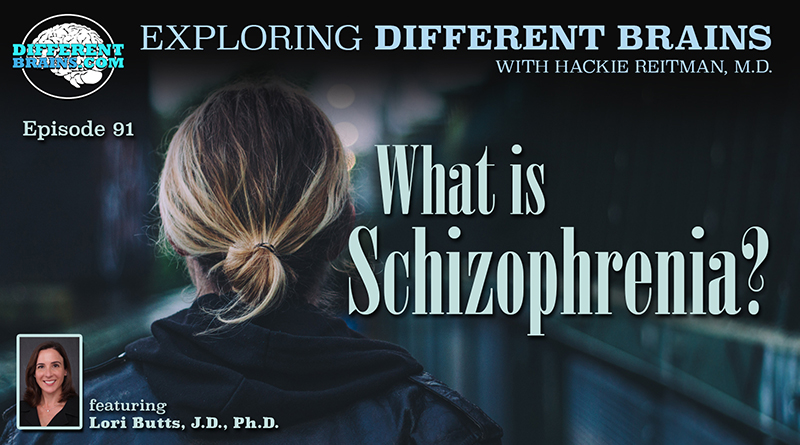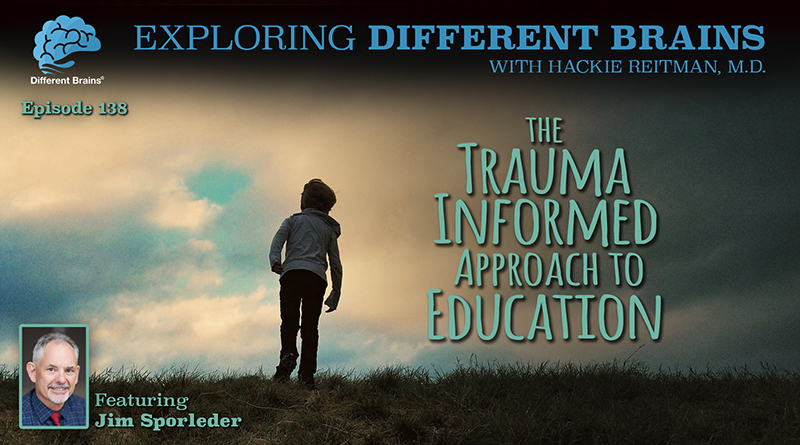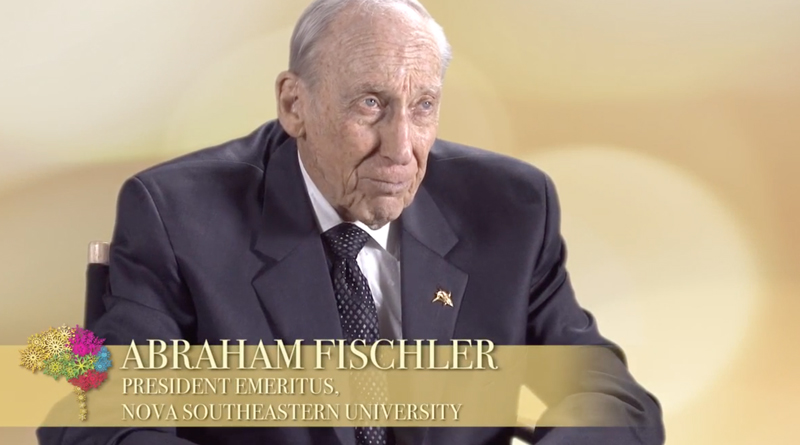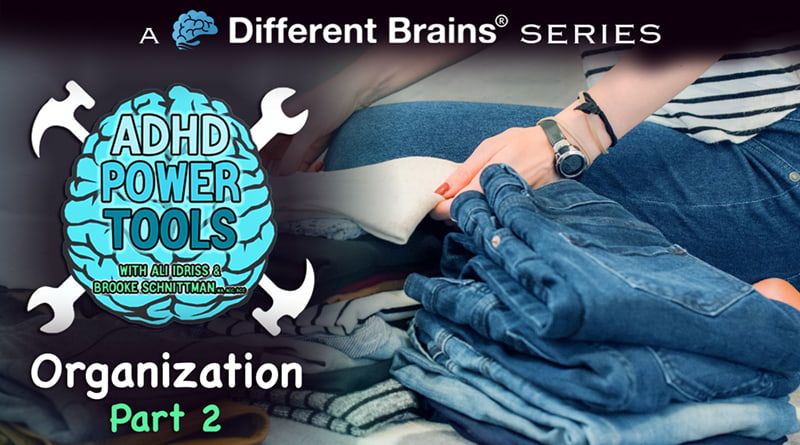
What is Schizophrenia? with Lori Butts J.D., PH.D. | EDB 91
(11 mins) In this episode, Harold Reitman, M.D. speaks with Lori Butts, J.D., Ph.D., the president and director of the Clinical & Forensic Institute, and previous president of the Florida Psychological Association, about Schizophrenia. Dr. Butts discusses what Schizophrenia is, what common treatments are, and demystifies common stereotypes about people with the condition.
For more about Dr. Lori Butts, visit: www.cfiexperts.com
.
61 Second Preview:
.
To listen or download the podcast version of this episode, see the embedded player below.
Or look for us on your favorite podcast provider:
iTunes | Stitcher | SoundCloud
[expand title=”View Full Transcript”]
HACKIE REITMAN, M.D. (HR): Hi, I’m Dr. Hackie Reitman, welcome to another episode of Exploring Different Brains. Today, we’re going to be discussing schizophrenia and we’ve brought to discuss it with it no other then my friend, Dr. Lori Butts. The outgoing President of the Florida Psychological Association and the head of the Clinical and Forensic Institute. She has not only a psychology degree but also a law degree. Lori, welcome.
LORI BUTTS J.D., PH.D. (LB): Thank You, hackie. It’s a great intro.
HR: Well, you’re a great person. You’re easy to intro. What is schizophrenia? Let’s pretend I don’t know anything, which is not far from the truth, about schizophrenia. What is it?
LB: So schizophrenia is a psychotic disorder, so it’s a break from reality. It can be somebody that’s having hallucinations, hearing voices, seeing things that aren’t there or somebody that has delusions. Believing facts that are not real. So the easiest way for me to describe it is a break from reality, somebody who’s processing information that is not in alignment with what is going on in reality.
HR: So if someone has schizophrenia, first of all, how do they get diagnosed?
LB: So typically we don’t see schizophrenia until late teens, early 20s. They typically get diagnosed because some family member or somebody notices that there’s something going on. It’s more common that somebody on the outside sees a change in somebody rather than the person say, you know, experiencing these things and complaining about it. They get diagnosed sometimes unfortunately and like the first psychotic break it’s called where somebody starts hearing voices, has delusions and is having a behavioral problem as a result of those and becomes apparent to whether be police officers, doctors, you know, somebody a physician treating them or to family members.
HR: Is it genetic or environmental or what is it?
LB: There’s a genetic predisposition to schizophrenia so not everybody has a genetic predisposition is going to get schizophrenia but so there’s a environmental component to it where stress or traumatic events or something like that can increase the likelihood that somebody who has a genetic predisposition to it will get it.
HR: Is it a constant thing or an intermittent thing?
LB: Schizophrenia is a lifelong problem. The symptoms are not constant. The symptoms are intermittent but and can be controlled or managed with medication but schizophrenia is a chronic mental illness where somebody will have it for the rest of their life. That being said, certainly if people are using substances or intoxicants that cause psychosis. Once they get sober from the substances, the psychosis will remit and they won’t have schizophrenia but it may look like schizophrenia.
HR: Does schizophrenia mainly occur isolated or is in conjunction with other neurodiversity in comorbidities.
LB: There are some comorbidities such as depression or anxiety, there’s another diagnosis called schizoaffective disorder. So, in addition to the thought problem, which is schizophrenia, the problems with thinking, there’s an affective component like a bipolar disorder component where the symptoms track when the person is having depression or mania. So schizoaffective disorder has both an affective and a cognitive component to it.
HR: And so once it’s diagnosed, how is it treated?
LB: Schizophrenia is treated with psychotropic medications. There are psychiatry has been developing these medications for many years and they’ve gotten pretty good but there’s still people, it’s still a trial-and-error type of treatment where patients have to try medications for a period of time to see if it helps that person. We don’t yet we’re not advanced enough to where we know this type of person will respond to this type of medication, unfortunately. So, what happens is when a person gets a diagnosed with schizophrenia, they get tried on certain medications to see what medications will work and unfortunately sometimes they don’t work the same way throughout somebody’s life, so that may change as a person ages matures. Different things happen in their lives so it’s a chronic situation where there needs to be a lot of psychiatric intervention. That does how it’s, you know, treated for the most part, but that’s how the symptoms are treated, but somebody with schizophrenia tends to need support around them. So there’s case management, there’s group therapy type of situations, there’s assistance with people needing vocational training or things like that to try and help support them manage their psychiatric condition and also be productive.
HR Is there a role for the psychologist in a big way with people with this disorder?
LB: Absolutely. So the people that do the best with managing schizophrenia have a strong support system. A psychologist would be a very large piece in that support system and also getting the family involved to support the person with the schizophrenia. It can be a very frightening diagnosis, it can be nerving, it could be very misunderstood by family members because of somebody’s not, if somebody’s having a break from reality, they may be paranoid or suspicious of people in their lives and that turns family members off. They think that they’re being a jerk or they’re being disrespectful and so the psychologist can provide a strong educational and supportive component for family members and people that are diagnosed with schizophrenia.
HR: What’s the incidence of schizophrenia?
LB: It’s about 1% of the population.
HR: 1%. So now we’re and let’s see. Bipolar was two and a half percent.
LB: Right.
HR: Schizophrenia is one person.
LB: Correct. Still a large number.
HR: It’s a big number.
LB: Yes.
HR: What would you say is the most common thing that people like me do not understand about this disorder that we call schizophrenia.
LB: I think people assume that if somebody has schizophrenia, they’re going to be violent. I think that they assume that somebody with schizophrenia is going to be aggressive and that’s not so. People with schizophrenia tend to be more quiet, more introverted, they want to pretend that their symptoms don’t exist, they aren’t necessarily broadcasting to other people that they’re hearing voices or they’re seeing things because they want to be perceived as normal and so it’s difficult for them to reach out and acknowledge that this is going on with them so they tend to isolate as opposed to acting out on other people or things like that.
HR: Lori, if someone has one psychotic break, does that mean that they are schizophrenic?
LB: No, it does not. Schizophrenia is a pervasive. It’s longer than one psychotic break. I believe the diagnostic criteria is six months. So there can be brief psychotic episodes that and the person never has a psychosis ever again. So schizophrenia is a longer pattern of being psychotic.
HR: Does schizophrenia get mistaken for other things or are there other entities misdiagnosed as schizophrenia?
LB: Oh sure, all the time.
HR: What are they? What are the most common?
LB: I mean autism would be one thing that people have difficulty discriminating between autism and schizophrenia because schizophrenia is a thought disorder and sometimes people with autism, their thoughts are not in the same linear pattern that one would expect when you talk to somebody. So sometimes I can be confused with schizophrenia. Bipolar disorder gets confused with schizophrenia, there’s a delusional disorder where somebody doesn’t have hallucinations but they have pervasive delusional beliefs and that can be confused with schizophrenia. There’s a whole host of disorder and also later in life when people have dementia or delirium, so schizophrenia happens when somebody’s younger, it doesn’t happen when people are older. It happens typically late teens, 20s. That’s when we see instances of schizophrenia begin.
HR: If our audience wants to get in touch with you, how do they do that?
LB: They can look me up at the Clinical and Forensic Institute. It’s our website CFIexperts.com.
HR: Well, we’ve been talking with my friend, Dr. Lori Butts all about schizophrenia, today. Here at Different Brains. Lori, it’s been a pleasure to have you, thank you for coming.
LB: Thank you for having me.
[/expand]
.
This video is owned by Different Brains Inc, kindly donated by it’s original producer PCE Media LLC.
Different Brains® Inc. founder Harold “Hackie” Reitman, M.D. is an author, filmmaker, retired orthopedic surgeon, former professional heavyweight boxer, the past chairman and president (and current board member) of The Boys and Girls Clubs of Broward County, and a neurodiversity advocate. However, it was his role as a father that led to the creation of the DifferentBrains.org website.
Hackie’s daughter Rebecca grew up with epilepsy, 23 vascular brains tumors, and underwent 2 brain surgeries before the age of 5. Her struggles and recovery put him on the road to, through 26 professional heavyweight boxing matches, raising money for children’s charities (to which he donated every fight purse).
Rebecca eventually went on to graduate from Georgia Tech with a degree in Discrete Mathematics, and Dr. Reitman wrote and produced a film based on her experiences there (The Square Root of 2, starring Darby Stanchfield of ABC’s Scandal). After graduation, Rebecca received a diagnosis of Asperger’s syndrome. Hackie, shocked at his own ignorance of the topic despite being an M.D., embarked on years of research that culminated with his book Aspertools: The Practical Guide for Understanding and Embracing Asperger’s, Autism Spectrum Disorders, and Neurodiversity (released by HCI books, publishers of the Chicken Soup for the Soul series).
This experience revealed to Hackie the interconnectedness of the conditions that fall under the neurodiversity umbrella, while alerting him to the in-fighting and fractured relations that often plague the organizations tasked with serving the community. Convinced that overcoming these schisms could help all of society, Hackie forged the Different Brains philosophy of inclusive advocacy: “Supporting Neurodiversity – From Autism to Alzheimer’s and All Brains In Between”.
In the company’s initial years of operation, Hackie self-financed all of the content on DifferentBrains.org, all of which offered free to view to the public. Currently he is the host of our weekly interview show Exploring Different Brains, writes blogs for the site, and tours the country speaking at conferences, conventions and private functions, all with the goal of improving the lives of neurodiverse individuals and their families, and maximizing the potential of those with different brains. Separate from Different Brains, Hackie is the founder and CEO of PCE Media, a media production company focusing on reality based content. He recently co-executive produced the documentary “Foreman”, the definitive feature documentary on legendary boxer and pitchman George Foreman.




